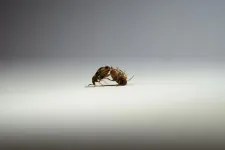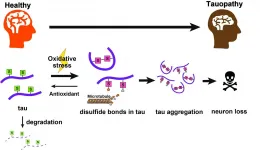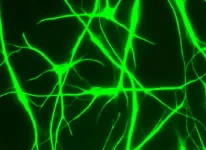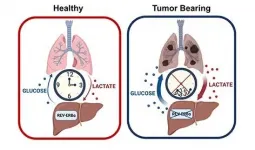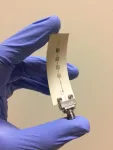Researchers engineer cells to destroy malignant tumor cells but leave the rest alone
2021-06-28
(Press-News.org) HAMILTON, ON June 28, 2021 -- Researchers at McMaster University have developed a promising new cancer immunotherapy that uses cancer-killing cells genetically engineered outside the body to find and destroy malignant tumors.
The modified "natural killer" cells can differentiate between cancer cells and healthy cells that are often intermingled in and around tumors, destroying only the targeted cells.
The natural killer cells' ability to distinguish the target cells, even from healthy cells that bear similar markers, brings new promise to this branch of immunotherapy, say members of the research team behind a paper published in the current issue of the journal iScience, newly posted on the PubMed database.
The experimental treatment is an alternative to chimeric antigen receptor T-cell therapy, or CAR-T, which received FDA approval in 2017. The engineered T-cells used in CAR-T therapy are highly effective against some blood-borne cancers but cannot distinguish between cancerous and non-cancerous cells, so while they offer important benefits, they are not uniformly applicable to all forms of cancer. In patients with solid tumors, the T-cells can cause devastating, even lethal side effects.
The team behind the research wanted a treatment with the same power as CAR-T, but which could be used safely against solid-tumor cancers. They first propagated natural killer cells taken from the blood of patients with breast cancer. Such cells perform a similar function to T-cells in the immune system.
The researchers then genetically modified them to target specific receptors on cancer cells, successfully testing the CAR-NK cells in the laboratory on tumor cells derived from breast cancer patients
"We want to be able to attack these malignancies that have been so resistant to other treatments," says lead author Ana Portillo, a PhD candidate in the Department of Medicine. "The efficacy we see with CAR-NK cells in the laboratory is very promising and seeing that this technology is feasible is very important. Now, we have much better and safer options for solid tumors."
"These CAR-NK cells are a little bit smarter, in a way, in that they only kill the enemy cells and not good cells that happen to have the same marker," says Ashkar, Portillo's supervisor and a Professor of Medicine at McMaster. "These cells have a sober second thought that says, 'I recognize this target, but is this target part of a healthy cell or a cancer cell?' They are able to leave the healthy cells alone and kill the cancer cells."
Portillo and Ashkar's 12 co-authors, most associated with McMaster's Department of Medicine and its Immunology Research Centre, include McMaster's Bindi Dhesy-Thind (Associate Professor, Oncology), who provided blood samples from patients being treated for breast cancer in her clinical practice at Hamilton Health Sciences' Juravinski Cancer Centre.
"These are very exciting results, as to date the benefits of immunotherapy in breast cancer have lagged behind that of other malignancies," she said. "These engineered CAR-NK cells are an important step towards having a viable immunotherapy option in this large group of patients."
Ashkar says there is good reason to believe the technology would have a similar effect on solid tumors associated with lung, ovarian and other cancers.
The next step in moving the therapy toward clinical use is to conduct human trials, which the researchers are now arranging.
INFORMATION:
[Attachments] See images for this press release:
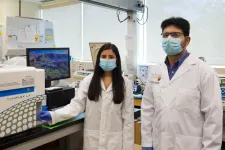
ELSE PRESS RELEASES FROM THIS DATE:
2021-06-27
A few males are enough to fertilise all the females. The number of males therefore has little bearing on a population's growth. However, they are important for purging bad mutations from the population. This is shown by a new Uppsala University study providing in-depth knowledge of the possible long-term genetic consequences of sexual selection. The results are published in the scientific journal Evolution Letters.
The study supports the theory that in many animal species selection acting on males can impose the fortuitous benefit to the population of causing offspring to inherit healthy genes. Stiff competition among males results ...
2021-06-26
Tokyo, Japan - Researchers from Tokyo Metropolitan University have discovered that a specific chemical feature of a key protein known as tau may cause it to accumulate in the brain and trigger illnesses like Alzheimer's. They found that disulfide bonds on certain amino acids act to stabilize tau and cause it to accumulate, an effect that got worse with increased oxidative stress. The identification of chemical targets triggering tau accumulation may lead to breakthrough treatments.
The tau protein is key to the healthy function of biological cells. It helps form and stabilize microtubules, the thin filaments that crisscross cell interiors to help keep them structurally rigid and provide 'highways' to shuttle molecules between organelles. However, when they ...
2021-06-26
A new vaccine to protect against deadly cholera has been made by grinding up genetically modified grains of rice. The first human trial has shown no obvious side effects and a good immune response. Researchers based at the University of Tokyo and Chiba University have published the peer-reviewed results of the Phase 1 clinical trial of the vaccine, named MucoRice-CTB, in The Lancet Microbe.
Vaccine manufacturing has made enormous strides in 2020, spurred on by COVID-19. However, the complexity of mRNA-based SARS-CoV-2 vaccines has highlighted the value of inoculations that can be made, transported and stored cheaply and without refrigeration.
The MucoRice-CTB vaccine is stable at room temperature from start to finish.
"I'm very optimistic for the future of our MucoRice-CTB vaccine, ...
2021-06-26
Just as humans have their own individual personalities, new research in the Journal of Comparative Psychology shows that elephants have personalities, too. Moreover, an elephant's personality may play an important role in how well that elephant can solve novel problems.
The article was written by Lisa Barrett and Sarah Benson-Amram in the University of Wyoming's Animal Behavior and Cognition Lab, led by Benson-Amram. It may be viewed here.
The authors of the paper tested 15 Asian elephants and three African savanna elephants in three zoos across the country -- the San Diego Zoo, the Smithsonian's National Zoological Park and the Oklahoma City Zoo -- with the help of elephant caretakers.
Previous work from Barrett and Benson-Amram demonstrated ...
2021-06-26
FINDINGS
A UCLA-led study comparing brain cells known as astrocytes in humans and mice found that mouse astrocytes are more resilient to oxidative stress, a damaging imbalance that is a mechanism behind many neurological disorders. A lack of oxygen triggers molecular repair mechanisms in these mouse astrocytes but not in human astrocytes. In contrast, inflammation activates immune-response genes in human astrocytes but not mouse astrocytes.
BACKGROUND
Although the mouse is a ubiquitous laboratory model used in research for neurological diseases, results from studies in mice are not always applicable to humans. In fact, more than 90% of drug candidates that show preclinical promise for neurological disorders ultimately fail when tested in humans, in part ...
2021-06-25
Crude oil production and natural gas withdrawals in the United States have lessened the country's dependence on foreign oil and provided financial relief to U.S. consumers, but have also raised longstanding concerns about environmental damage, such as groundwater contamination.
A researcher in Syracuse University's College of Arts and Sciences, and a team of scientists from Penn State, have developed a new machine learning technique to holistically assess water quality data in order to detect groundwater samples likely impacted by recent methane leakage during oil and gas production. Using that model, the team concluded that unconventional drilling ...
2021-06-25
Irvine, CA - June 25, 2021 - New research from the University of California, Irvine reveals how the circadian regulation of glucose production in the liver is lost during lung cancer progression, and how the resulting increase in glucose production may fuel cancer cell growth.
The new study titled, "Glucagon regulates the stability of REV-ERBα to modulate hepatic glucose production in a model of lung cancer-associated cachexia," published today in Science Advances, illustrates how the circadian clock is regulated under conditions of stress such as during lung cancer progression and cancer-associated tissue wasting ...
2021-06-25
After suffering a stroke, patients often are unable to use the arm on their affected side. Sometimes, they end up holding it close to their body, with the elbow flexed.
In a new study, Northwestern University and Shirley Ryan AbilityLab researchers have discovered that, in an attempt to adapt to this impairment, muscles actually lose sarcomeres -- their smallest, most basic building blocks.
Stacked end to end (in series) and side to side (in parallel), sarcomeres make up the length and width of muscle fibers. By imaging biceps muscles with three noninvasive methods, the researchers found that stroke patients had fewer sarcomeres along the length ...
2021-06-25
ROCHESTER, Minn. -- Researchers at Mayo Clinic Cancer Center are studying a potential new chimeric antigen receptor-T cell therapy (CAR-T cell therapy) treatment for multiple myeloma. Their findings were published on Friday, June 24, in The Lancet.
"CAR-T cell therapy is a type of immunotherapy that involves harnessing the power of a person's own immune system by engineering their T cells to recognize and destroy cancer cells," says Yi Lin, M.D., a Mayo Clinic hematologist and lead author of the study.
Dr. Lin says the Food and Drug Administration approved ...
2021-06-25
The promise of 5G Internet of Things (IoT) networks requires more scalable and robust communication systems -- ones that deliver drastically higher data rates and lower power consumption per device.
Backscatter radios ? passive sensors that reflect rather than radiate energy ? are known for their low-cost, low-complexity, and battery-free operation, making them a potential key enabler of this future although they typically feature low data rates and their performance strongly depends on the surrounding environment.
Researchers at the Georgia Institute of Technology, Nokia Bell Labs, and Heriot-Watt University have found a low-cost way for backscatter radios to support high-throughput communication and 5G-speed Gb/sec data transfer using only a single transistor when previously ...
LAST 30 PRESS RELEASES:
[Press-News.org] Researchers engineer cells to destroy malignant tumor cells but leave the rest alone

